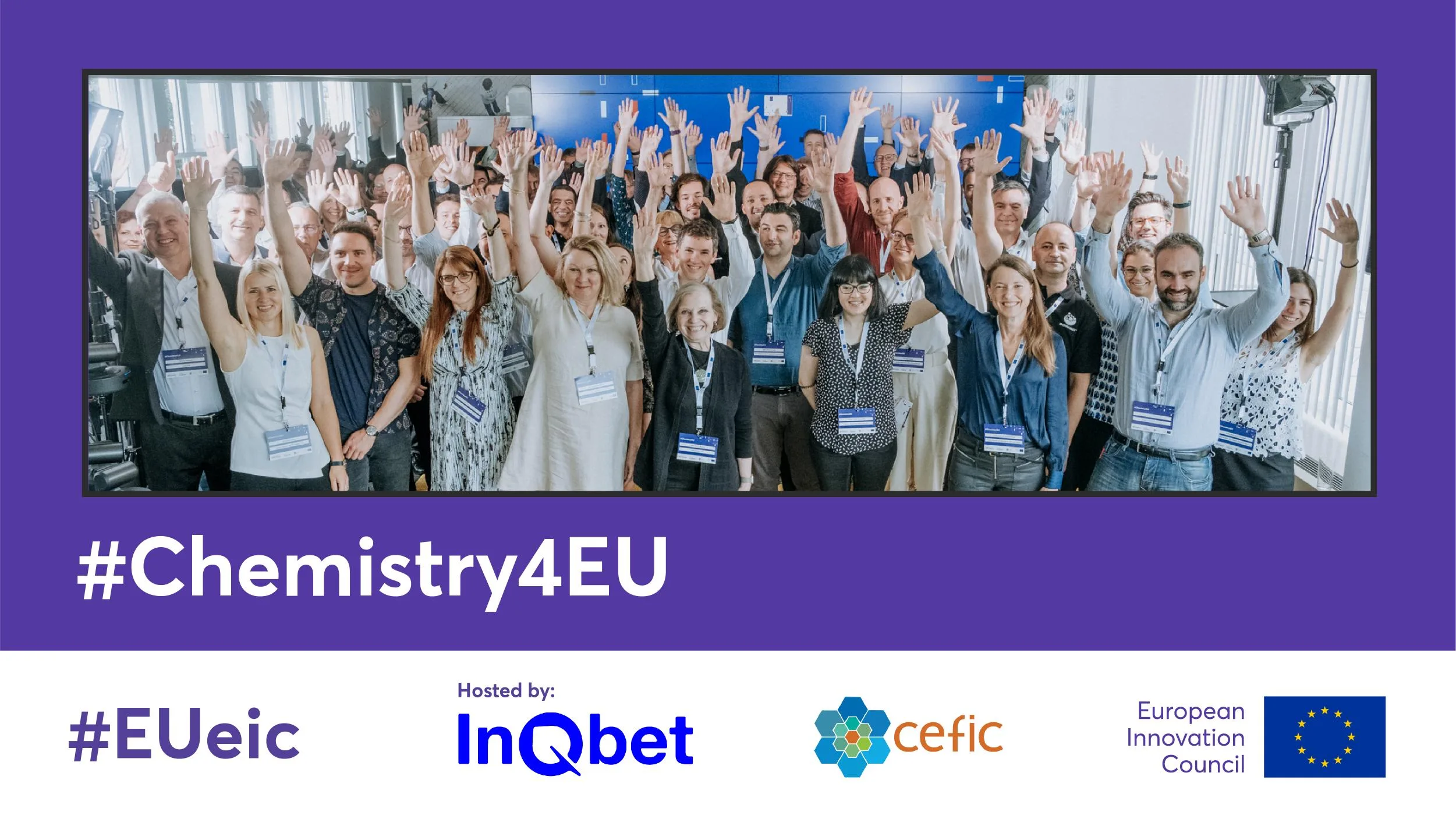Centaurs and unicorns are usually heard of only in myths, but in the world of start-ups they turn fiction into reality. They are the inventors of breakthrough technologies, and are only lacking in finance to bring their ideas to market. Bringing start-ups and corporate investors from the chemical industry together was at the heart of the chemistry4EU matchmaking event organised by Cefic and the European Innovation Council on 22 June.
Innovation acts as a surfboard to ride the wave of challenges
In addition to green and digital transition that all other sectors have to undergo, the chemicals industry also has a circularity challenge and the Chemicals Strategy for Sustainability to comply with between now and 2050. “The chemical industry is facing a tsunami of change. The only way out is to find a surfboard and ride the wave exactly where it breaks. Innovation is that surfboard”, said Marco Mensink, Director General Cefic. “We need to be the frontrunners that develop the first commercial applications of breakthrough technologies in key industrial sectors by 2030. By working together with start-ups, we will bring transformational breakthroughs closer to market.”
The industry is already working hard on reducing emissions from chemicals production and transitioning to the use of renewable energy. Future chemistry takes inspiration from nature in achieving this goal. One such example is photochemistry – replicating the photosynthetic process to produce chemicals from CO2, water and sunlight. Another is biochemistry – learning from chemical and physico-chemical processes and substances that occur within living organisms.
Start-ups and chemical industry complement each other to bring breakthroughs to market

The chemical industry cannot design chemical innovations that are safe and sustainable on its own: “We need startups for their ingenuity and thinking outside of the box”, said Ilham Kadri, Chief Executive Officer Solvay. “Corporations bring the experience, funding and scalability, so that startups can go faster, quicker, bigger”. These innovations need to accelerate in order to meet the ambitions of the EU Green Deal goals set out for 2030 and 2050. As Peter Vanlaeke, Investment Manager Solvay Ventures, said “If you want to launch a new Facebook, it takes one week. If you want to launch a new polymer, it will require as much as 20 years to develop and scale up”.
“The European Innovation Council provides the relevant runways so these projects can take flight” said Kinga Stanislawska, member of the EIC Advisory Board. The EIC supports top-class innovators, entrepreneurs, small companies and scientists with bright ideas and the ambition to scale up internationally, both financially and through coaching.
Over 30 EIC-funded startups pitched innovative solutions in five areas linked to the transition pathways to 13 of the largest chemical companies and associations. To sum it all up “Europe has the talent, inspiration and capacity to grow innovative companies with high impact solutions that make a positive difference in millions of people’s lives everyday day”, concluded Jean David Malo, Director of the EIC and the SMEs Executive Agency (EISMEA).
As a next step the chemical companies and start-ups that found their “match” during this event will sign agreements to bring these ideas to scale. Stay tuned!









